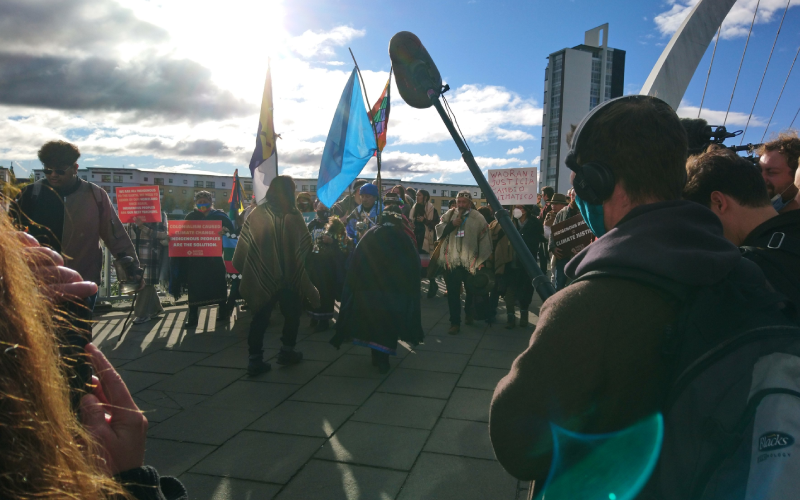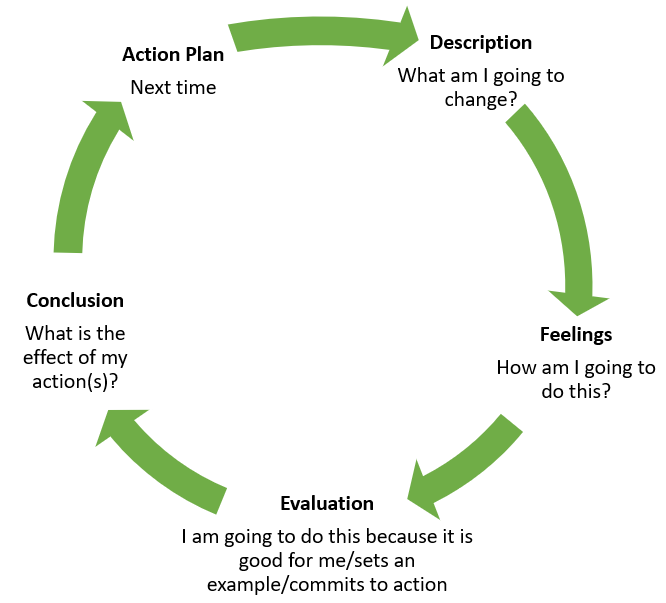You are here
- Home
- Develop your (Climate) Action Plan
Develop your (Climate) Action Plan

COP26 has been bringing together parties from across the world to accelerate action towards the goals of the Paris Agreement and the UN Framework Convention on Climate Change. The Open University has official observer status at COP26 and is learning from the conference to inform the university’s wider sustainability mission and inspire students and staff to take action. Here are some of the conference’s highlights, as told by our Open University observers.
COP26 Diary - 4 November: Gillian Mawdsley, Associate Lecturer in the Faculty of Business and Law.
Our COP26 observer Gillian Mawdsley, challenges you to develop the actions which you can take to address climate change.
- Speak to your colleagues, team, manager, students, partner organisations and suppliers – all your key stakeholders. Start discussing how your areas of work or responsibility impact the environment, nature and climate change, there will be positive impacts as well as negative!
- Explore how you can reduce negative environmental impacts and make a plan of how to do that and who to involve
- Join Go Green and support workplace sustainability at the OU – share your ideas and actions, ask ‘what if’ questions, offer solutions
- Speak to the MarComms team in your unit or faculty – participate in discussions, and share any actions which are being taken now, or which you can take soon or plan for in the longer-term. Make sure to let Nick Braithwaite know about your actions or any help and support you need
- Engage with politicians – ensure that they support the green agenda in Parliament. You can write to your local representatives and check their voting record
- Encourage friends and family – talk and debate the issues which COP26 is highlighting. Plan what you can achieve within that group together
- Consider how climate change impacts on you - your and your family’s health, your work, your social life and your future
- Reduce your carbon foot print- educate yourself on how this can best be achieved
- Invest in renewables and a sustainable future – use your savings wisely to support environmentally committed organizations and not those continuing to support fossil fuels
My final appeal from COP26 is to develop your own personal plan setting out your own commitments to respond to the climate emergency. The Gibbs cycle of reflection can perhaps provide a useful tool.

Inspired by and adapted from the Climate and Health Alliance.
Related articles
- Accelerating Ambition and Impact: EAUC Conference 2024 30th July 2024
- Driving change: Imagining a different transport future 23rd July 2024
- Donating items to MK Food Bank 21st July 2024
- Butterflies as indicators of our impacts on nature - Climate Perspectives 9th July 2024
- Education for Sustainable Development Changemakers 8th July 2024